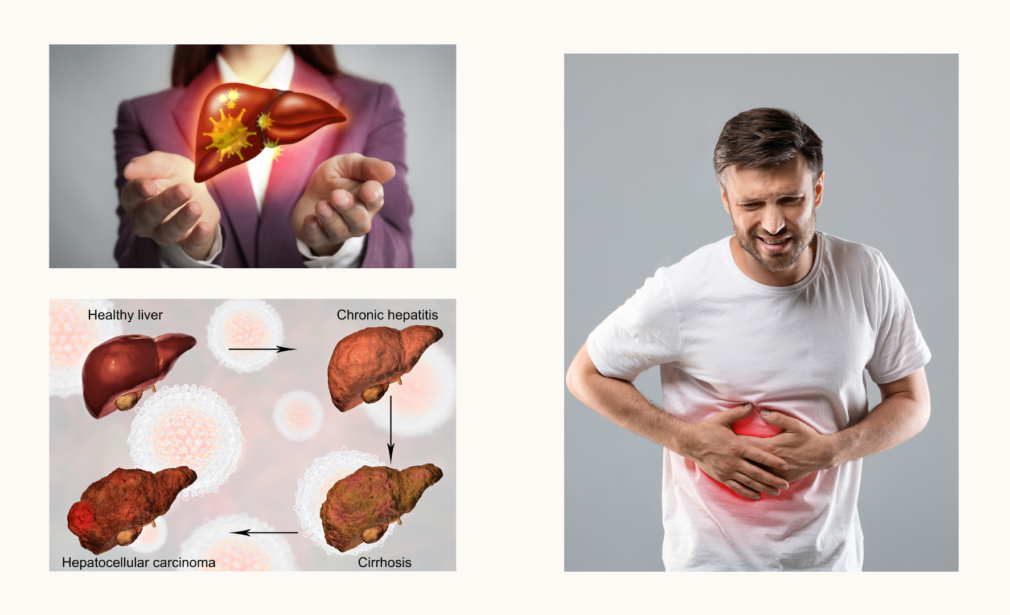Unani Care for a Healthy Liver
The liver is essential for detoxifying the body and maintaining overall health. At Arrazi, we provide natural Unani remedies to support liver health and address conditions such as fatty liver, jaundice, and liver cirrhosis. Our treatments work to cleanse the liver, reduce inflammation, and restore its normal functioning, ensuring better overall well-being.
With a focus on holistic healing, our expert Unani doctors create personalized treatment plans to target the root causes of liver issues. Using safe and effective Unani formulations, we aim to promote liver regeneration, prevent further damage, and improve your quality of life. Experience the natural path to a healthier liver with Arrazi.
- Fatty Liver
- Liver Cirrhosis
- Fatty Liver
Simple Steps to Book Your Appointment Online
Scheduling your appointment is quick and easy! Choose your condition, select your preferred doctor, pick a time, and confirm your booking—all from the comfort of your home.

Schedule Your Appointment:

Get Expert Guidance:

Start Healing Naturally:
Frequently asked questions
Yes, our Unani treatments are designed to reduce fat accumulation in the liver, promote detoxification, and restore liver function naturally.
Our Unani remedies are safe and effective, focusing on improving liver health, reducing inflammation, and preventing further damage in conditions like liver cirrhosis.
Improvement varies depending on the condition, but most patients notice positive changes within a few weeks of consistent treatment.
Understanding Symptoms, Diagnosis, and Treatment of Liver Diseases in India
Liver diseases are a significant health concern in India, with rising cases affecting millions of people each year. The liver is a vital organ responsible for detoxification, nutrient metabolism, and the production of essential proteins. However, liver diseases such as chronic liver disease, alcoholic liver disease, and fatty liver disease can impair these functions and lead to severe health complications. This comprehensive guide covers liver disease symptoms, diagnosis, and treatment options in India, helping individuals recognize the signs and seek timely medical intervention.
Common Liver Diseases in India
India has witnessed an alarming rise in liver diseases, primarily due to factors like poor diet, alcohol consumption, and non-communicable diseases such as diabetes and hypertension. Some of the most common liver diseases in India include:
Alcoholic Liver Disease (ALD): Alcoholic liver disease is caused by excessive alcohol consumption over time. If left untreated, ALD can progress to severe liver conditions like cirrhosis and liver failure. Symptoms of alcoholic liver disease include jaundice, abdominal pain, and leg swelling.
Chronic Liver Disease (CLD): Chronic liver disease is a term that encompasses a variety of liver conditions, including hepatitis B, hepatitis C, and cirrhosis. In India, hepatitis is one of the major contributors to chronic liver disease, and if not managed properly, it can lead to cirrhosis and liver failure.
Fatty Liver Disease (NAFLD): Non-alcoholic fatty liver disease (NAFLD) is becoming increasingly common in India due to rising rates of obesity, poor dietary habits, and sedentary lifestyles. Fatty liver disease can cause liver inflammation and may eventually progress to liver fibrosis or cirrhosis if untreated.
Symptoms of Liver Diseases
The symptoms of liver diseases vary depending on the type and severity of the condition. Some of the most common symptoms of liver disease include:
- Jaundice: Yellowing of the skin and eyes, commonly associated with liver dysfunction.
- Abdominal Pain: Discomfort in the upper right side of the abdomen may indicate a liver problem.
- Fatigue: Unexplained tiredness and weakness can be a sign of liver disease.
- Swelling: Fluid retention in the abdomen or legs may occur in severe liver conditions.
- Nausea and Vomiting: These can result from toxin buildup in the body due to poor liver function.
Diagnosis of Liver Diseases
The diagnosis of liver diseases begins with a physical examination and medical history review. Doctors may recommend the following tests to confirm the diagnosis and assess liver health:
Liver Function Tests (LFTs): Liver function tests (LFTs) are essential in assessing the liver’s ability to function. These blood tests measure liver enzyme levels and bilirubin, helping doctors detect liver abnormalities.
Ultrasound: An abdominal ultrasound can identify liver enlargement, fatty liver, or cirrhosis, providing a clear image of liver health.
CT Scan/MRI: CT scans and MRIs give detailed views of the liver, helping doctors identify liver damage or any abnormalities.
Liver Biopsy: In some cases, a liver biopsy may be required to assess the extent of liver damage or to diagnose specific liver diseases such as cirrhosis or hepatitis.
Treatment of Liver Diseases
The treatment of liver diseases in India depends on the specific condition, its severity, and the patient’s overall health. Some of the most common treatment options include:
Medications:
- Antiviral Drugs: For conditions like hepatitis B and hepatitis C, antiviral medications can help reduce the viral load and prevent liver damage.
- Corticosteroids: These drugs are used to treat liver inflammation caused by conditions like autoimmune hepatitis.
Lifestyle Modifications:
- Dietary Changes: A balanced diet, low in fats and high in fruits and vegetables, can help manage liver diseases such as fatty liver disease and cirrhosis.
- Exercise: Regular physical activity can help prevent the development of fatty liver disease and improve liver health.
Surgical Options:
- Liver Transplantation: In cases of advanced liver cirrhosis or liver failure, a liver transplant may be necessary.
Conclusion
Liver diseases are preventable and manageable with timely intervention and lifestyle changes. By understanding the symptoms of liver disease, recognizing risk factors such as alcohol consumption and obesity, and seeking early diagnosis, individuals can improve their liver health. In India, where liver disease prevalence is rising, awareness of these conditions is crucial. Regular medical checkups, healthy eating habits, and maintaining a balanced lifestyle can help reduce the risk of liver disease and ensure better long-term liver health.
This guide provides valuable insights into liver health, diagnosis of liver diseases, and available liver disease treatments in India, ensuring individuals make informed decisions regarding their health.

